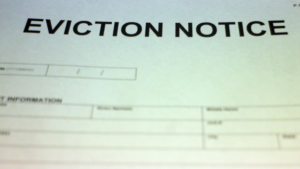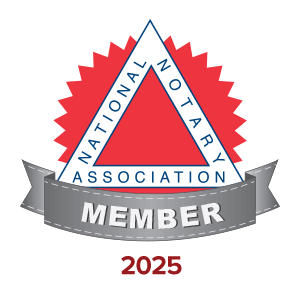The Eviction Process Under the CARES Act

- Does the ban on evictions apply to all Public Housing (PHA) tenants or only those tenants whose employment has been affected by the COVID-19 Virus?
- I was behind on rent payments prior to the CARES Act. Can the Public Housing Authority (PHA) still proceed with termination and eviction? Will it be a foreclosure?
- States & Local Governments
- Can a Public Housing Authority (PHA)/owner evict a tenant for drug abuse and other criminal activity? How about for other lease or program violations, like failure to report income or severe damage to the unit?
- Fees and paying rent
- I was late on rent prior to March 27, 2020 and was charged a late fee in January and February. Can my Public Housing Authority (PHA) collect fees from me for nonpayment of rent that were charged prior to the moratorium?
- During the moratorium, can fees for late payments accumulate and be charged after the moratorium?
- Can the Public Housing Authority (PHA)/owner terminate a voucher participant family’s assistance if they do not pay their portion of the rent during the eviction moratorium (March 27, 2020 – July 24, 2020)?
- Are the $1200 stimulus payments, or “Recovery Rebates” to individuals considered annual income?
- Will Public Housing Authorities (PHAs) consider unemployment benefits as income? What about the extra payments provided in the stimulus bills?
- Relief options
- What kind of relief is available to Section 184 and Section 184A borrowers during this national emergency?
- Borrowers With Financial Hardship
- LET’S KEEP IN TOUCH!
Does the ban on evictions apply to all Public Housing (PHA) tenants or only those tenants whose employment has been affected by the COVID-19 Virus?
The temporary moratorium on: (1) evictions for nonpayment of rent, (2) fees and penalties related to nonpayment of rent; applies to tenants who were affected by COVID-19. HUD encourages PHA’s to alert residents that any rent missed during the moratorium will accumulate and due at the end of moratorium.
I was behind on rent payments prior to the CARES Act. Can the Public Housing Authority (PHA) still proceed with termination and eviction? Will it be a foreclosure?
If the eviction proceeding was initiated before March 27, 2020, the proceeding would not be covered under the CARES Act and the eviction action can continue. HUD encourages (PHAs) to consider delaying the completion of evictions for non-drug, non-crime reasons until after state or local emergencies are over.
If an eviction proceeding was not initiated before March 27, 2020 for a household who was behind on rent; then the household is covered under the CARES Act and the owner cannot initiate a new eviction proceeding.
States & Local Governments
In addition, many state and local governments have stopped evictions because of the coronavirus pandemic. The details of how renters are protected, and for how long, depend on where you live. Some states have:
- Prohibited any eviction notices or action
- Stopped all court eviction hearings
- Stopped enforcing eviction orders or judgments
Visit the Eviction Lab’s list of state and local eviction and foreclosure limits to find out if your state or local community has eviction protections during this time.
Can a Public Housing Authority (PHA)/owner evict a tenant for drug abuse and other criminal activity? How about for other lease or program violations, like failure to report income or severe damage to the unit?
Yes. The eviction moratorium found in Section 4024(b) of the CARES Act only applies to evictions related to nonpayment of rent. The moratorium also prohibits the charging of other fees, penalties, or other charges due to the nonpayment of rent. The owner can still undertake an eviction of assistance action against a tenant for drug abuse or other criminal activity. The same is true for other lease violations.
Fees and paying rent
I was late on rent prior to March 27, 2020 and was charged a late fee in January and February. Can my Public Housing Authority (PHA) collect fees from me for nonpayment of rent that were charged prior to the moratorium?
Yes, fees that were charged for nonpayment of rent prior to March 27, 2020 may be collected during the moratorium. However, a PHA cannot charge new fees for nonpayment of rent from March 27, 2020 – July 24, 2020. A PHA cannot assess interest on late fees charged in January and February.
During the moratorium, can fees for late payments accumulate and be charged after the moratorium?
No. Per Section 4024(b)(2) of the CARES Act, fees in relation to nonpayment of rent cannot be charged. Therefore, fees cannot accrue. There should be no charges, or accrual of charges, for rent due the first of the month in April, May, June and July 2020.
Can the Public Housing Authority (PHA)/owner terminate a voucher participant family’s assistance if they do not pay their portion of the rent during the eviction moratorium (March 27, 2020 – July 24, 2020)?
Normally, the PHA could terminate a family’s voucher assistance if the family owes their landlord rent. However, during the eviction moratorium, PHAs shall not terminate assistance for nonpayment of rent. Voucher program participants are to report changes in income to the PHA so their rent portion can be adjusted based. This will help families keep up with their rent and avoid facing eviction after the eviction moratorium ends on July 24th.
Are the $1200 stimulus payments, or “Recovery Rebates” to individuals considered annual income?
No. Pursuant to 24 CFR 5.609(c)(9), annual income does not include temporary, nonrecurring or sporadic income. The pending stimulus payments directly to individuals and families would be excluded from annual income, as they are temporary, non-recurring payments.
Will Public Housing Authorities (PHAs) consider unemployment benefits as income? What about the extra payments provided in the stimulus bills?
Regular unemployment benefits are considered income. PHAs shall exclude the $600 per week enhancement provided by the CARES Act; these payments are temporary and likely non-recurring after the pandemic emergency ends.
Relief options
What kind of relief is available to Section 184 and Section 184A borrowers during this national emergency?
On March 20, 2020, HUD published a Dear Lender Letter to inform approved lenders of a foreclosure and eviction moratorium. All loans guaranteed under the Section 184 Indian Home Loan Guarantee Program, Section 184A Native Hawaiian Housing Loan Guarantee program for a period of 60 days. Congress provided similar statutory relief to Section 184 and Section 184A borrowers in the CARES Act. Section 4022 of the CARES Act provides that, a servicer of a Section 184 or Section 184A loan may not initiative foreclosure proceedings; move for a foreclosure judgment or order of sale. As of March 18, 2020, they may not execute a foreclosure-related eviction or foreclosure sale for not less than the 60-day period.
Borrowers With Financial Hardship
In addition to the foreclosure moratorium; the Act allows borrowers experiencing financial hardship request forbearance on a Section 184 loan. Regardless of delinquency status, they can submit a request to the servicer and confirm that the borrower is experiencing hardship. Servicers are required to grant such forbearance for up to 180 days. This period may be extended for up to another 180 days at the request of the borrower.
Borrowers may also request a shortened forbearance period. Servicers are required to approve forbearance requests with no additional documentation required. They may not charge fees, penalties, or interest (beyond the amounts scheduled as if the borrower made all contractual payments on time and in full under the terms of the mortgage contract). During a period of forbearance, no fees, penalties, or interest may be charged. The amounts scheduled as if the borrower made all payments on time under the terms of the mortgage.
If you want to be contacted by a realtor, please complete the form below.

